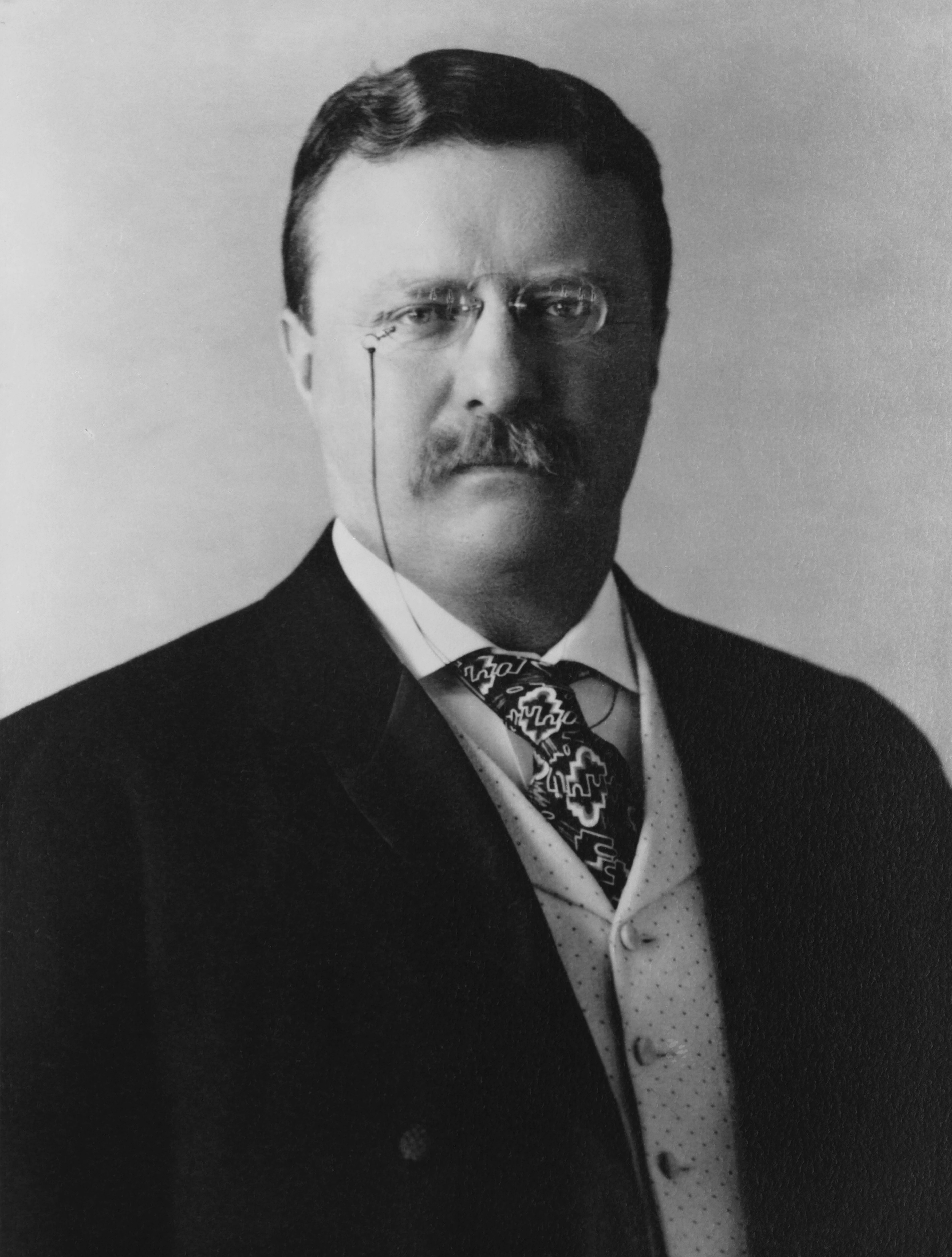Theodore Roosevelt frasi celebri
Theodore Roosevelt Frasi e Citazioni
Origine: Citato in Marco Pastonesi e Giorgio Terruzzi, Palla lunga e pedalare, Dalai Editore, 1992, p. 83. ISBN 88-8598-826-2
Origine: 1901, pp. 246-47; citato in Losurdo 2005, p. 299.
“Nessun trionfo di pace è più esaltante di un trionfo di guerra.”
Origine: Citato in Focus, n. 85, p. 180.
parlando di come stroncare scioperi e conflitti sociali: citato in Hofstadter 1960, p. 216; citato in Losurdo 2005, p. 323
Theodore Roosevelt: Frasi in inglese
1910s, The World Movement (1910)
1900s, Letter to Winfield T. Durbin (1903)
1910s, The New Nationalism (1910)
“I have already lived and enjoyed as much life as any nine other men I have known.”
As quoted in "Roosevelt The Greatest Outdoor Man" by Arthur K. Willyoung in Outing Vol. 74, No. 6 (September 1919), p. 353
1910s
"Our Vanishing Wildlife", in The Outlook (25 January 1913); republished in Literary Essays (vol. 12 of The Works of Theodore Roosevelt, national ed., 1926), chapter 46, p. 420
1910s
1910s, Address at Milwaukee, Wisconsin (1912)
1910s, The Progressives, Past and Present (1910)
"Platform Insincerity" in The Outlook, Vol. 101, No. 13 (27 July 1912), p. 660
1910s
1910s, The World Movement (1910)
1900s, Letter to Winfield T. Durbin (1903)
1910s, Address to the Knights of Columbus (1915)
As quoted in Manliness and Civilization: A Cultural History of Gender and Race in the United States, 1880-1917 (2008), by Gail Bederman, Illinois: University of Chicago Press. p. 198.
1910s, Address to the Knights of Columbus (1915)
Contesto: There must be not merely preparedness in things material; there must be preparedness in soul and mind. To prepare a great army and navy without preparing a proper national spirit would avail nothing. And if there is not only a proper national spirit, but proper national intelligence, we shall realize that even from the standpoint of the army and navy some civil preparedness is indispensable. For example, a plan for national defense which does not include the most far-reaching use and cooperation of our railroads must prove largely futile. These railroads are organized in time of peace. But we must have the most carefully thought out organization from the national and centralized standpoint in order to use them in time of war. This means first that those in charge of them from the highest to the lowest must understand their duty in time of war, must be permeated with the spirit of genuine patriotism; and second, that they and we shall understand that efficiency is as essential as patriotism; one is useless without the other.
1910s, The Progressives, Past and Present (1910)
Foreword http://www.bartleby.com/55/100.html
1910s, Theodore Roosevelt — An Autobiography (1913)
Origine: 1910s, Theodore Roosevelt — An Autobiography (1913), Ch. IX : Outdoors and Indoors, p. 337
1900s, The Strenuous Life: Essays and Addresses (1900), National Duties
1900s, Letter to Winfield T. Durbin (1903)
1910s, Citizenship in a Republic (1910)
1900s, "In God we Trust" letter (1907)
1900s, Letter to Winfield T. Durbin (1903)
1910s, Address to the Knights of Columbus (1915)
Contesto: The one absolutely certain way of bringing this nation to ruin, of preventing all possibility of its continuing to be a nation at all, would be to permit it to become a tangle of squabbling nationalities, an intricate knot of German-Americans, Irish-Americans, English-Americans, French-Americans, Scandinavian-Americans or Italian-Americans, each preserving its separate nationality, each at heart feeling more sympathy with Europeans of that nationality, than with the other citizens of the American Republic. The men who do not become Americans and nothing else are hyphenated Americans; and there ought to be no room for them in this country. The man who calls himself an American citizen and who yet shows by his actions that he is primarily the citizen of a foreign land, plays a thoroughly mischievous part in the life of our body politic. He has no place here; and the sooner he returns to the land to which he feels his real heart allegiance, the better it will be for every good American. There is no such thing as a hyphenated American who is a good American. The only man who is a good American is the man who is an American and nothing else.
Talk to schoolchildren in Oyster Bay, Christmastime (1898) http://www.trsite.org/content/pages/speaking-loudly, as quoted in The Bully Pulpit : A Teddy Roosevelt Book of Quotations (2002) by H. Paul Jeffers, p. 22
1890s
1910s, The New Nationalism (1910)
1910s, The Progressives, Past and Present (1910)
" The Higher Life of American Cities http://www.theodore-roosevelt.com/images/research/treditorials/o151.pdf", in The Outlook (21 December 1895), p. 1083-1085
1890s
Appendix A
1910s, Theodore Roosevelt — An Autobiography (1913)
1900s, The Strenuous Life: Essays and Addresses (1900), National Duties
“Please put out the light, James.”
Last words, to his valet, James Amos (6 January 1919), as quoted in Adventures of Theodore Roosevelt (1928) by Edwin Emerson, p. 336
1910s
"The City in Modern Life", Literary Essays (vol. 12 of The Works of Theodore Roosevelt, national ed., 1926), p. 226. Book review in The Atlantic Monthly (April 1895)
1890s
